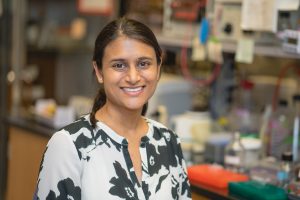Mapping and engineering biological networks using systems and synthetic biology
The Shah Lab uses viruses and engineering principles to perturb and control biological networks. We are interested in exploring two major questions:
- How do flaviviruses hijack host machinery to facilitate their own replication?
- Can we control these biological networks for biomedical and biotechnology applications?
We use complementary techniques of global proteomics, genetics, high-throughput sequencing, microscopy and synthetic biology to tackle these questions.
Flavivirus-host interactions
Mosquito-borne flaviviruses such as dengue virus and Zika virus are a source of emerging and re-emerging infectious diseases. We study how these viruses hijack host machinery through virus-host protein interactions to better understand their replication and develop therapeutics. We have two active areas of research on flavivirus-host interactions:
Antiviral Gene Expression Program
Cells respond to viral infections by activating the expression of antiviral genes such as interferon stimulated genes (ISGs), and viruses are continually evolving ways to evade this antiviral response. We study how flaviviruses including dengue and Zika virus hijack host gene expression machinery to inhibit the antiviral innate immune response.
Autophagy
Autophagy is responsible for recycling cellular components into primary biological building blocks. Autophagy can be induced by the stresses elicited during pathogen infection, and can be used to clear the cell of intracellular pathogens such as viruses. However, it has recently been demonstrated that several viruses, including dengue and Zika virus, benefit from certain aspects of autophagy for replication. This begs the question, how do these viruses selectively induce beneficial aspects of autophagy while not succumbing to its antiviral potential, and can we engineer controls that mimic or negate this selective induction of autophagy?
We study how flaviviruses hijack the autophagy network in a dynamic way. Specifically, we study how protein and genetic interactions in the autophagy network change during infection, and how these relate back to the viruses’ ability to replicate.
Engineering Biological Controls
Controlling Autophagy for Biotechnology
In addition to being induced during infections, autophagy can also be induced during nutrient deprivation and high level protein production that cells can experience in industrial settings. We use systems and synthetic biology approaches to model and engineer controls over autophagy network to improve bioreactor protein yields.





